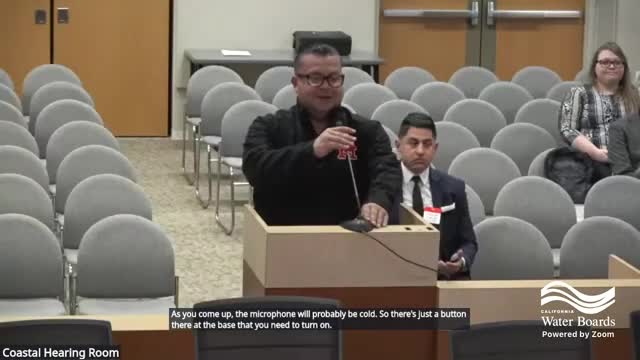Article not found
This article is no longer available. But don't worry—we've gathered other articles that discuss the same topic.
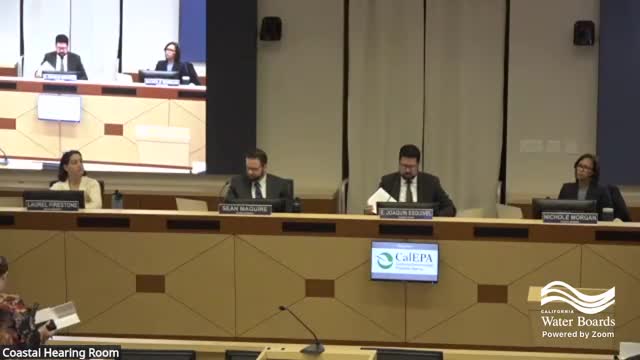
State Water Board presents 2025 strategic work plan update; BIPOC water access and domestic wells draw public attention
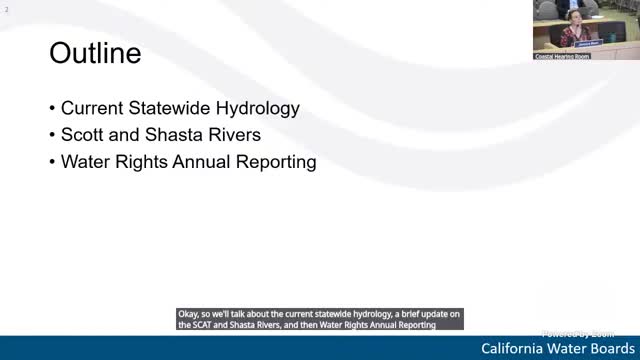
State Water Board staff: snowpack below northern norms, reservoir storage above average; water-rights reporting misses persist
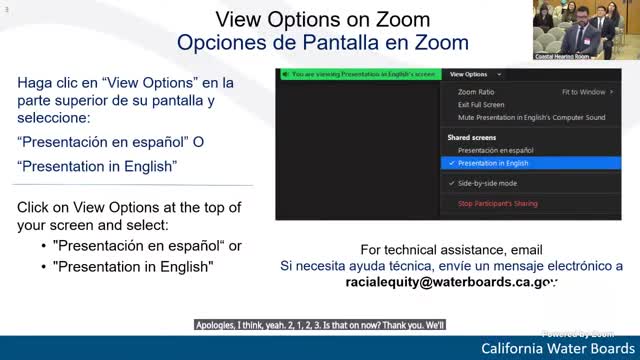
State Water Board reports progress on Racial Equity Action Plan; office reorganized to include Tribal Affairs
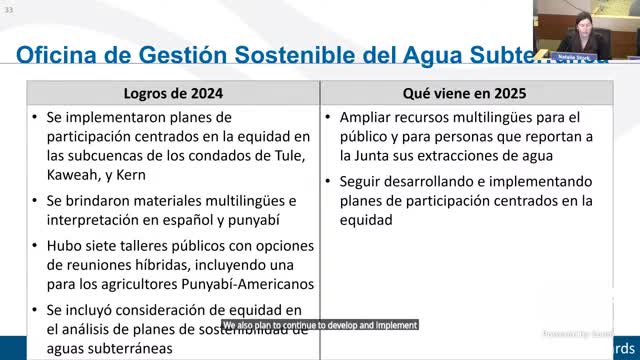
Delta Watermaster reports progress on OpenET reporting, flags South-Delta channel capacity and invasive mussel detection
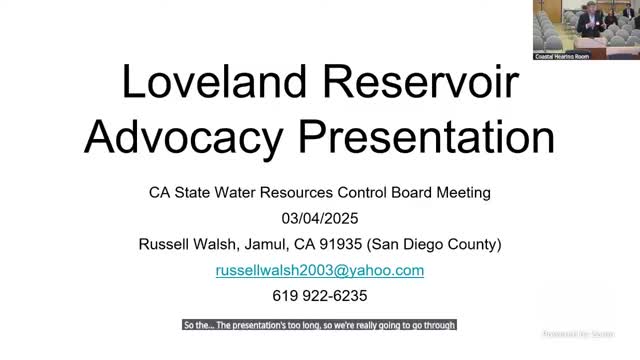
Public criticizes Loveland Reservoir drawdown, seeks state reinvestigation and moratorium
